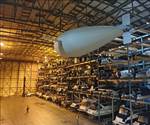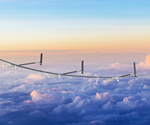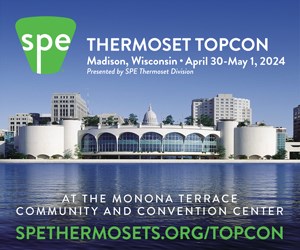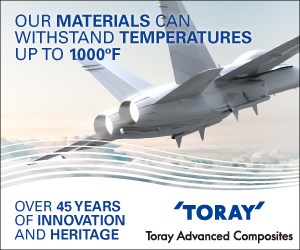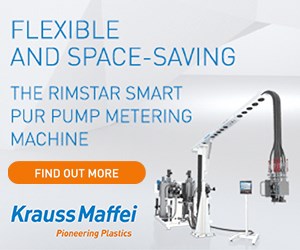Titania works with Airbus D&S on reduced-cost infusion for UAVs
Industrial production of UAV parts 15% less cost, developed as part of the MALTA 2020 program.
Titania (Cadiz, Spain) is developing a new out-of-autoclave (OOA) composite manufacturing process for unmanned aerial vehicle (UAV) structures through its Manufacturing and Automation of Low-Cost Thermosets for Competitive Advantage project (MALTA 2020). The process reportedly will reduce costs for producing UAV parts by 15% compared to traditional manufacturing methods.
The process is based on liquid resin infusion, also known as modified vacuum infusion (MVI), reducing equipment costs by eliminating the need for autoclave cure. Titania’s cost-effective, aerospace-grade reinforcements and resins are said to enable curing at ambient temperature, which is intended to save energy costs while maintaining aerospace-grade material properties.
The MALTA 2020 project is promoted by a consortium led by Airbus Defense & Space (Ottobrunn, Germany) partnering with Aerotecnic (Seville, Spain), Nanotures (Cadiz, Spain) and Titania, and is funded by the Technological Corp. of Andalusia (CTA; Seville, Spain). The context for the project, according to Titania, is to introduce new, cost-effective manufacturing technologies and structural materials to enable major aircraft manufacturers to enter the UAV manufacturing market, a market Titania says is currently dominated by niche UAV manufacturers.
The participation of Titania in this project is specifically focused on the study of the properties of the new resins that are being postulated, and setting up the new low-cost process at a pre-industrial scale. To this end, the company has implemented a new liquid resin infusion process at its composite R&D center.
This process involves the positioning of reinforcement material between a mold and a vacuum bag, followed by the injection of a mixed resin system. After injection, heat is applied to induce polymerization of the resin system. Unlike the conventional manufacturing process for aeronautical structures, this process does not use pre-impregnated materials nor autoclave to cure the resin.
This is the first time that the Airbus plant in El Puerto de Santa Maria has started a manufacturing process by infusion, which will allow Titania to incorporate resin-infused panels into its portfolio of products and services, including projects in the automotive, rail, marine and wind energy sectors.
The MALTA 2020 project began in 2018 and will finish in 2019. In the first year, Titania conducted screening tests for several resins and reinforcements used in both monolithic and sandwich structures. In the second year, Titania is performing new manufacturing activities using selected materials in previous steps. These panels will be mechanically characterized including impact resistance and aging conditions for determining humidity and temperature effects.
"Our participation,” explains Raúl Páez, technical manager of Titania, “is crucial for achieving project goals, as it is focused on manufacturing process setup and optimization, and also materials characterization and selection. This data becomes critical for the rest of project participants, as they will have to use materials selected by Titania, and also to setup the infusion process for industrial scale by using the expertise learnt by the company at coupon level.”
Related Content
-
Novel dry tape for liquid molded composites
MTorres seeks to enable next-gen aircraft and open new markets for composites with low-cost, high-permeability tapes and versatile, high-speed production lines.
-
One-piece, one-shot, 17-meter wing spar for high-rate aircraft manufacture
GKN Aerospace has spent the last five years developing materials strategies and resin transfer molding (RTM) for an aircraft trailing edge wing spar for the Airbus Wing of Tomorrow program.
-
The state of recycled carbon fiber
As the need for carbon fiber rises, can recycling fill the gap?

.jpg;width=70;height=70;mode=crop)
